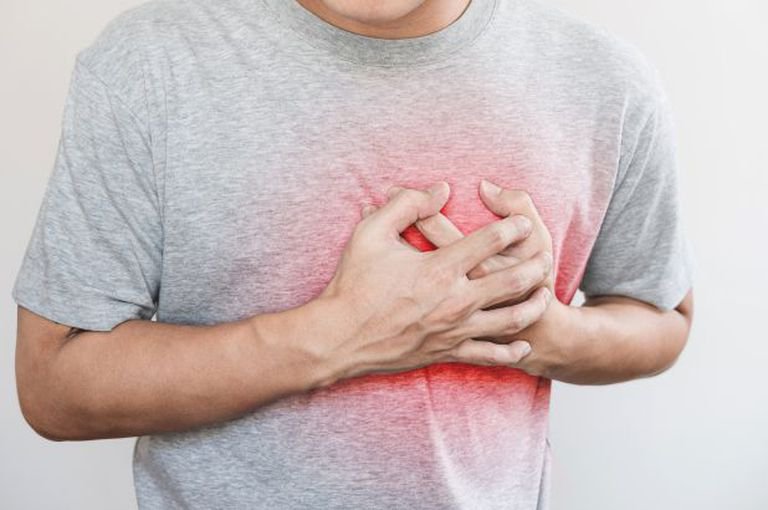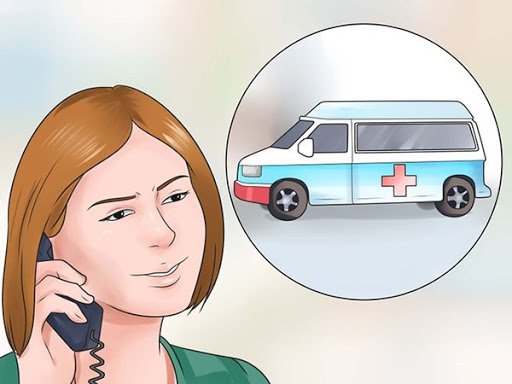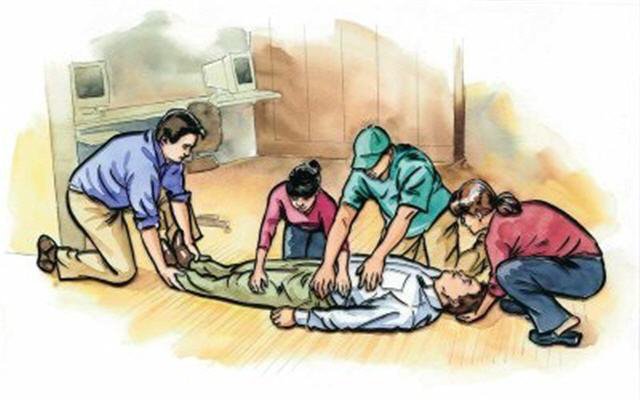How do you stop a heart attack immediately?
The article is professionally consulted by Master, Doctor Do Nguyen Thuy Doan Trang - Head of Extracorporeal Circulation Team - Cardiovascular Center - Vinmec Central Park International General Hospital.
Do you know the symptoms of a heart attack? This is a life-threatening emergency that requires quick action. Don't ignore even minor heart attack symptoms. Immediate treatment reduces heart damage and saves lives.
1. Recognize the Symptoms
Symptoms of a heart attack vary from person to person. Not all heart attacks begin with the sudden, intense chest pain most of us have heard of. In fact, some cases cause no symptoms at all, especially those that occur in people with diabetes.
Symptoms may begin slowly, with mild pain and discomfort. They can happen when you are resting or being active. Their severity can depend on your age, sex, and medical condition.
Symptoms may begin slowly, with mild pain and discomfort. They can happen when you are resting or being active. Their severity can depend on your age, sex, and medical condition.

Cơn đau tức ngực đột ngột dữ dội là triệu chứng phổ biến nhất của cơn đau tim
2. Warning signs
Common warning signs may include:
Chest discomfort such as pressure, tightness, or squeezing pain that lasts for more than a few minutes and then goes away and comes back. Pain and discomfort from the chest to other parts of the body such as one or both arms, back, neck, abdomen, teeth and jaw Unexplained shortness of breath, with or without chest discomfort. Other symptoms, such as:
Cold sweats Nausea or vomiting Lightheadedness Anxiety, indigestion Unexplained fatigue Women are more likely to have other problems such as neck, shoulders, upper back or abdominal pain than men.
Chest discomfort such as pressure, tightness, or squeezing pain that lasts for more than a few minutes and then goes away and comes back. Pain and discomfort from the chest to other parts of the body such as one or both arms, back, neck, abdomen, teeth and jaw Unexplained shortness of breath, with or without chest discomfort. Other symptoms, such as:
Cold sweats Nausea or vomiting Lightheadedness Anxiety, indigestion Unexplained fatigue Women are more likely to have other problems such as neck, shoulders, upper back or abdominal pain than men.
3. What to do when they happen?
If you or someone else has chest discomfort or other heart attack symptoms, call 911 immediately. While you may be able to drive a heart attack patient yourself to the hospital, you're better off taking an ambulance. Because emergency personnel can start treatment on the way to the hospital. They are trained to do cardiopulmonary resuscitation if the patient's heart stops beating.
If you cannot reach the emergency team then take the patient to the hospital. If you're someone with heart attack symptoms, don't drive yourself to the hospital unless you have no other choice.
Many people delay treatment because they simply suspect they are having a heart attack and because they do not want to disturb or worry their friends and family. However, it is better not to ignore any signs even if you just suspect a heart attack.
If you cannot reach the emergency team then take the patient to the hospital. If you're someone with heart attack symptoms, don't drive yourself to the hospital unless you have no other choice.
Many people delay treatment because they simply suspect they are having a heart attack and because they do not want to disturb or worry their friends and family. However, it is better not to ignore any signs even if you just suspect a heart attack.

Gọi cấp cứu ngay lập tức nếu ai đó có triệu chứng đau tim
4. Quick response
Quick action can save a patient's life. If used quickly after symptoms appear, drugs that dissolve blood clots and open arteries can prevent a heart attack. Coronary stents can open blocked blood vessels. The longer you wait for treatment, the lower your chances of survival and heart damage increase.
About half of people who die of a heart attack can be saved within the first hour after symptoms begin.
About half of people who die of a heart attack can be saved within the first hour after symptoms begin.
5. What to do before the medical staff arrives
Try to keep the patient calm and have them sit or lie down. If the patient stops breathing, you or another qualified person must perform CPR immediately. If you do not know CPR, the emergency operator can help you until paramedics arrive. When paramedics arrive at home:
A dose of 150-300 mg of rapidly absorbed aspirin may be given if there are no contraindications. Sublingual nitroglycerin can be given if the patient has chest pain, Keep the patient at rest, avoid strenuous exercise, and Seek immediate medical attention if the patient has chest pain lasting more than 20 minutes, hemodynamically unstable sure, fainting...
A dose of 150-300 mg of rapidly absorbed aspirin may be given if there are no contraindications. Sublingual nitroglycerin can be given if the patient has chest pain, Keep the patient at rest, avoid strenuous exercise, and Seek immediate medical attention if the patient has chest pain lasting more than 20 minutes, hemodynamically unstable sure, fainting...

Trong lúc đợi cấp cứu đến, hãy cho bệnh nhân nằm hoặc ngồi xuống
6. Always be prepared
No one knows when a heart attack will happen, so it's best to be prepared. Steps you can take before symptoms start include:
Memorize a list of heart attack symptoms and warning signs. Remember that you need to call 911 within 5 minutes of the onset of symptoms. Talk to family and friends about the warning signs and the importance of calling 911 right away. Know your risk factors and do what you can to reduce them. Set up a bulletin board that includes information about your current medications, allergies, doctor's phone numbers and who to contact in case you go to the hospital and keep this information on hand at all times. your wallet. Arrange to have a caregiver if an emergency occurs. The Emergency Department of Vinmec Times City International General Hospital operates 24/24 on all days of the week, including Saturdays and Sundays as well as holidays of the year. The team of emergency doctors and nurses at the Department are professionally and thoroughly trained, able to receive and handle urgent cases of patients, and always coordinate with all specialties in a timely manner. fast.
Memorize a list of heart attack symptoms and warning signs. Remember that you need to call 911 within 5 minutes of the onset of symptoms. Talk to family and friends about the warning signs and the importance of calling 911 right away. Know your risk factors and do what you can to reduce them. Set up a bulletin board that includes information about your current medications, allergies, doctor's phone numbers and who to contact in case you go to the hospital and keep this information on hand at all times. your wallet. Arrange to have a caregiver if an emergency occurs. The Emergency Department of Vinmec Times City International General Hospital operates 24/24 on all days of the week, including Saturdays and Sundays as well as holidays of the year. The team of emergency doctors and nurses at the Department are professionally and thoroughly trained, able to receive and handle urgent cases of patients, and always coordinate with all specialties in a timely manner. fast.
Để đặt lịch khám tại viện, Quý khách vui lòng bấm số HOTLINE hoặc đặt lịch trực tiếp TẠI ĐÂY. Tải và đặt lịch khám tự động trên ứng dụng MyVinmec để quản lý, theo dõi lịch và đặt hẹn mọi lúc mọi nơi ngay trên ứng dụng.
Reference source: webmd.com





